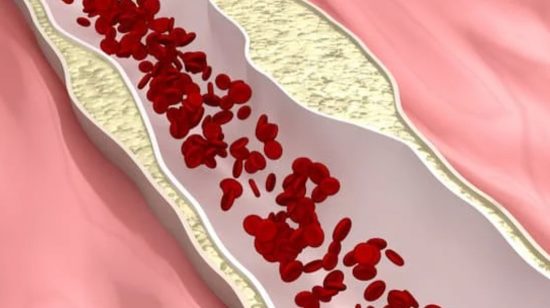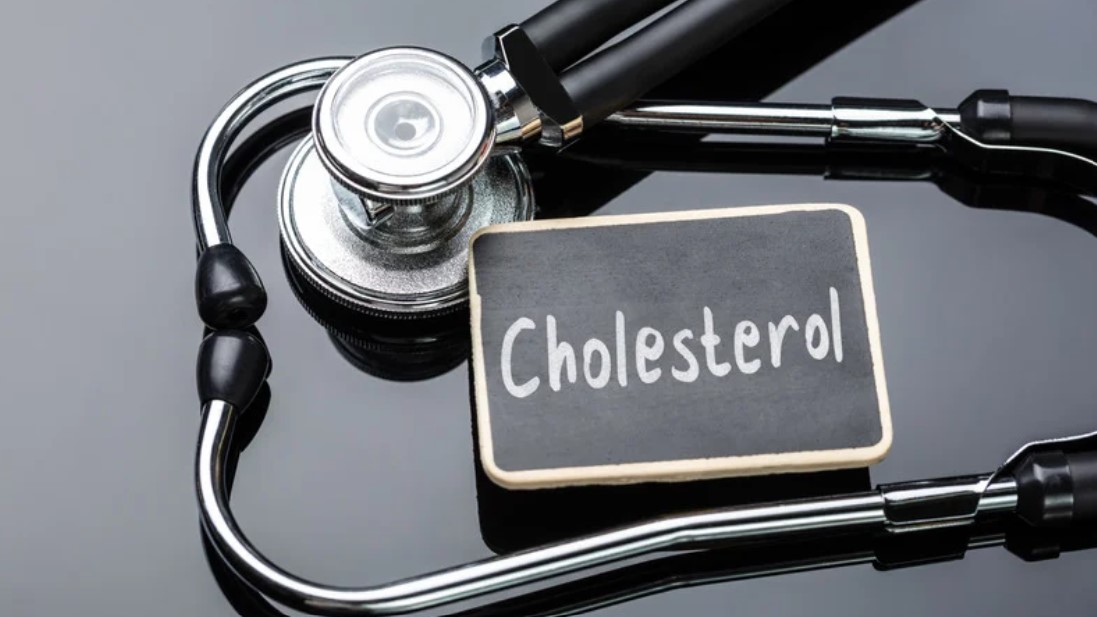Lowering cholesterol levels is an important step in maintaining good overall health. High cholesterol can increase the risk of heart disease and stroke, two of the leading causes of death worldwide. Fortunately, there are several ways to lower cholesterol levels through lifestyle changes and medical interventions.
In this guide, we will explore some effective methods for lowering cholesterol and improving your cardiovascular health. By making simple changes to your diet and exercise routine, you can significantly reduce your cholesterol levels and improve your overall well-being. Let’s dive into how to lower cholesterol!
What is Cholesterol?

Cholesterol is a waxy substance that is naturally produced by the liver and is essential for the proper functioning of the body. While our bodies need a certain amount of cholesterol to build healthy cells and produce essential hormones, excessive levels of cholesterol can lead to health problems, particularly cardiovascular diseases.
Cholesterol is transported through the bloodstream in lipoproteins, which are classified as low-density lipoproteins (LDL) and high-density lipoproteins (HDL). LDL cholesterol, often referred to as “bad” cholesterol, can build up in the arteries and form plaques, leading to blockages and increasing the risk of heart disease.
On the other hand, HDL cholesterol, known as “good” cholesterol, helps remove LDL cholesterol from the bloodstream, reducing the risk of cardiovascular issues. It’s important to maintain a balance of cholesterol levels through a healthy lifestyle and regular monitoring to promote overall well-being.
What Causes High Cholesterol?
High cholesterol is caused by a combination of factors, including:
- Dietary Choices: Consuming a diet high in saturated and trans fats, found in red meat, full-fat dairy products, fried foods, and processed snacks, can elevate LDL (“bad”) cholesterol levels.
- Genetics: Some individuals have a genetic predisposition that leads to higher cholesterol production or difficulty in removing excess cholesterol from the body.
- Lack of Physical Activity: A sedentary lifestyle can contribute to lower levels of HDL (“good”) cholesterol, which plays a role in removing LDL cholesterol from the bloodstream.
- Health Conditions: Certain medical conditions, such as diabetes, hypothyroidism, and kidney disease, can contribute to elevated cholesterol levels.
To manage high cholesterol, it is important to address both lifestyle factors and underlying health conditions through appropriate interventions and regular monitoring.
Why is it Important to Lower Cholesterol Levels?

- Lowering cholesterol is crucial for heart health because high levels of LDL cholesterol can lead to plaque buildup in arteries, increasing the risk of heart disease, heart attacks, and strokes.
- Significantly decreasing cholesterol levels is a key preventive measure, reducing the risk of developing cardiovascular diseases.
- Lower cholesterol levels help prevent the accumulation of plaque in arteries, reducing the likelihood of atherosclerosis and improving blood flow.
- Optimal cholesterol levels contribute to better overall cardiovascular health, promoting improved circulation and reducing strain on the heart.
- Lower cholesterol is associated with a decreased risk of various health issues, potentially leading to a longer and healthier life.
- Managing cholesterol is particularly important for individuals with conditions like diabetes and hypertension, contributing to overall disease management and reducing complications.
How to Lower Cholesterol?
1. Eat a Heart-Healthy Diet

Eating a heart-healthy diet is a fundamental pillar in reducing cholesterol levels and promoting cardiovascular health. This entails making mindful food choices that prioritize nutrient-dense options. Opting for healthy fats like those found in avocados, olive oil, nuts, and fatty fish while limiting saturated and trans fats can help lower LDL cholesterol.
Emphasizing fibre-rich foods such as whole grains, legumes, fruits, and vegetables assists in reducing cholesterol absorption. Additionally, incorporating omega-3 fatty acids from sources like fatty fish, flaxseeds, and walnuts can further benefit heart health.
By adopting a heart-healthy diet, individuals can proactively manage their cholesterol levels and enhance overall well-being.
2. Exercise Regularly

Regular exercise is a vital component in lowering cholesterol levels and improving heart health. Engaging in physical activity not only helps raise HDL (good) cholesterol but also reduces levels of LDL (bad) cholesterol and triglycerides.
Aerobic exercises like brisk walking, jogging, swimming, or cycling increase heart rate and improve cardiovascular fitness. Aim for at least 150 minutes of moderate-intensity aerobic activity per week, or consult with a healthcare professional to determine an appropriate exercise routine.
Additionally, including strength training exercises two to three times a week can further enhance overall cardiovascular health. Making regular exercise a priority can have a positive impact on cholesterol levels, weight management, and overall well-being.
3. Maintain a Healthy Weight

Maintaining a healthy weight is crucial for managing cholesterol levels and promoting optimal heart health. Excess weight, especially around the waist, can contribute to higher LDL cholesterol and triglyceride levels while lowering HDL cholesterol levels.
By achieving and maintaining a healthy weight, individuals can reduce the strain on their cardiovascular system and improve cholesterol profiles. Implementing a combination of a balanced diet and regular exercise can help achieve weight management goals.
Consulting with a healthcare professional or registered dietitian can provide personalized guidance and support in establishing a healthy weight range and developing a sustainable plan for long-term success. Prioritizing healthy weight management not only positively impacts cholesterol but also overall health and well-being.
4. Quit Smoking

Smoking is not only harmful to your lungs, but it also wreaks havoc on your cardiovascular health. Quitting smoking is one of the most impactful steps individuals can take to lower their cholesterol levels and improve cardiovascular health.
Smoking damages blood vessels, promotes the formation of plaque, and lowers HDL (good) cholesterol. Quitting smoking not only helps restore blood vessel health and function but also reduces the risk of heart disease and stroke. Within just a few months of quitting, the body starts to repair itself, and cholesterol levels may begin to improve.
The benefits of quitting smoking extend far beyond cholesterol management, positively impacting overall health and longevity. It is important to seek support from healthcare professionals, support groups, or quit-smoking programs to increase the likelihood of success.
With determination and support, quitting smoking is a powerful step towards better cholesterol control and enhancing overall well-being.
5. Limit Alcohol Consumption

Excessive alcohol consumption not only takes a toll on your liver but can also wreak havoc on your cholesterol levels. Limiting alcohol consumption is an important aspect of managing cholesterol levels and promoting cardiovascular health.
While moderate alcohol intake may have some potential heart benefits, excessive or heavy drinking can lead to high cholesterol levels and other adverse health effects. Alcohol can raise triglyceride levels and contribute to weight gain, which in turn can negatively impact cholesterol profiles.
To maintain healthy cholesterol levels, it is recommended to limit alcohol consumption to moderate levels. In other words, women are allowed one drink each day and males are allowed two. However, it’s essential to note that individuals with certain health conditions or those taking specific medications may need to avoid alcohol altogether.
It’s always a good idea to consult with a healthcare professional for personalized guidance on alcohol consumption based on individual health circumstances. Implementing moderation or abstaining from alcohol can help support healthy cholesterol management and overall heart health.
6. Consider Medications

In some cases, lifestyle changes alone may not be sufficient to lower cholesterol levels effectively. In such situations, healthcare professionals may recommend considering medications to help manage cholesterol.
There are several types of medications available, including statins, bile acid sequestrants, cholesterol absorption inhibitors, and PCSK9 inhibitors. Statins are the most commonly prescribed medications and work by reducing the production of cholesterol in the liver. Bile acid sequestrants bind to bile acids in the intestines, preventing their reabsorption and promoting the elimination of cholesterol.
Food-based cholesterol absorption is inhibited by cholesterol absorption inhibitors. PCSK9 inhibitors help lower LDL cholesterol by increasing the liver’s ability to remove it from the bloodstream. It is important to note that medication should only be taken under medical supervision, and the type and dosage will depend on individual health factors and cholesterol levels.
Regular monitoring and follow-up with a healthcare professional are essential to ensure the medication’s effectiveness and address any potential side effects.
Foods to Avoid for High Cholesterol

1. Saturated Fat-Rich Foods:
- Red meat (beef, pork, lamb)
- Full-fat dairy products (whole milk, cheese, butter)
- Processed meats (sausages, hot dogs, bacon)
- Skin-on poultry
2. Trans Fat-Containing Foods:
- Fried foods (French fries, fried chicken)
- Commercially baked goods (cakes, cookies, pastries) often contain partially hydrogenated oils
- Margarine and certain spreads
3. High-Cholesterol Seafood:
- Shellfish (shrimp, lobster, crab) can be high in cholesterol, but they are lower in saturated fat compared to some other sources.
4. Processed Snacks and Fast Foods:
- Packaged snacks (chips, crackers)
- Fast food items (burgers, fried chicken) can be high in unhealthy fats and contribute to elevated cholesterol levels.
5. Limiting Egg Yolks:
- While eggs can be part of a healthy diet, it’s advisable to limit egg yolks due to their cholesterol content. Consider incorporating more egg whites or using cholesterol-lowering alternatives.
6. Certain Cooking Oils:
- Coconut oil and palm oil, though popular, are high in saturated fats. Consider using healthier cooking oils like olive oil or canola oil.
7. High-Fat Desserts:
- Ice cream, cakes, pancakes and pies can be high in both saturated and trans fats, contributing to elevated cholesterol.
Conclusion
In conclusion, lowering cholesterol levels is crucial for maintaining a healthy heart and overall well-being. By following these simple steps, such as incorporating a balanced diet, regular exercise, and minimizing unhealthy habits, one can effectively lower their cholesterol levels and reduce the risk of developing heart disease.
It is important to regularly monitor cholesterol levels and consult with a healthcare professional for personalized advice. With dedication and consistency, individuals can achieve optimal cholesterol levels and improve their overall health.
FAQs – How to Lower Cholesterol?
How long does it take to lower cholesterol naturally?
The time to lower cholesterol naturally varies, but significant changes may take several weeks to months. It depends on factors like initial cholesterol levels, lifestyle changes, and genetics. Natural approaches, including a healthy diet and exercise, are effective for long-term management.
Are bananas good for cholesterol?
Yes, bananas can contribute to heart health. They are low in saturated fat and rich in fibre, potassium, and antioxidants. While they won’t directly lower cholesterol, including bananas in a heart-healthy diet may have positive effects on overall cardiovascular health.
How often should cholesterol levels be checked?
Cholesterol levels should typically be checked every 4 to 6 years in adults. However, individuals with known high cholesterol, those on cholesterol-lowering medications, or those with risk factors may require more frequent monitoring. Consult with a healthcare professional to determine the appropriate frequency based on individual health needs.
Can I Lower Cholesterol Through Diet Alone?
Yes, lowering cholesterol through diet alone is possible. Adopting a heart-healthy diet that includes foods low in saturated and trans fats, high in fibre, and rich in healthy fats can positively impact cholesterol levels. However, lifestyle changes such as regular exercise and weight management also play key roles in effective cholesterol management.

